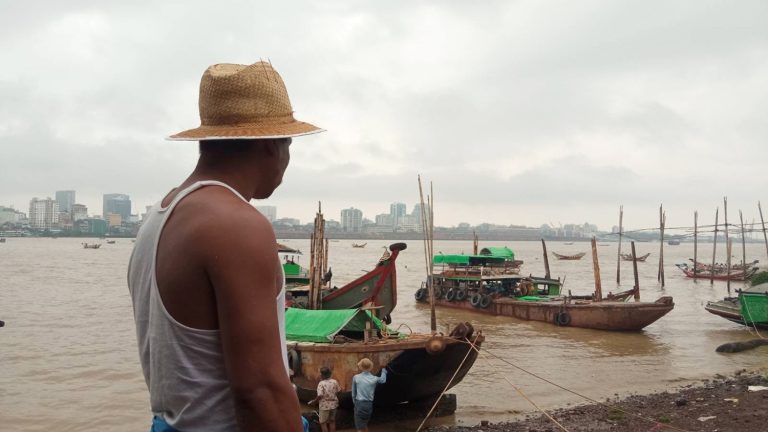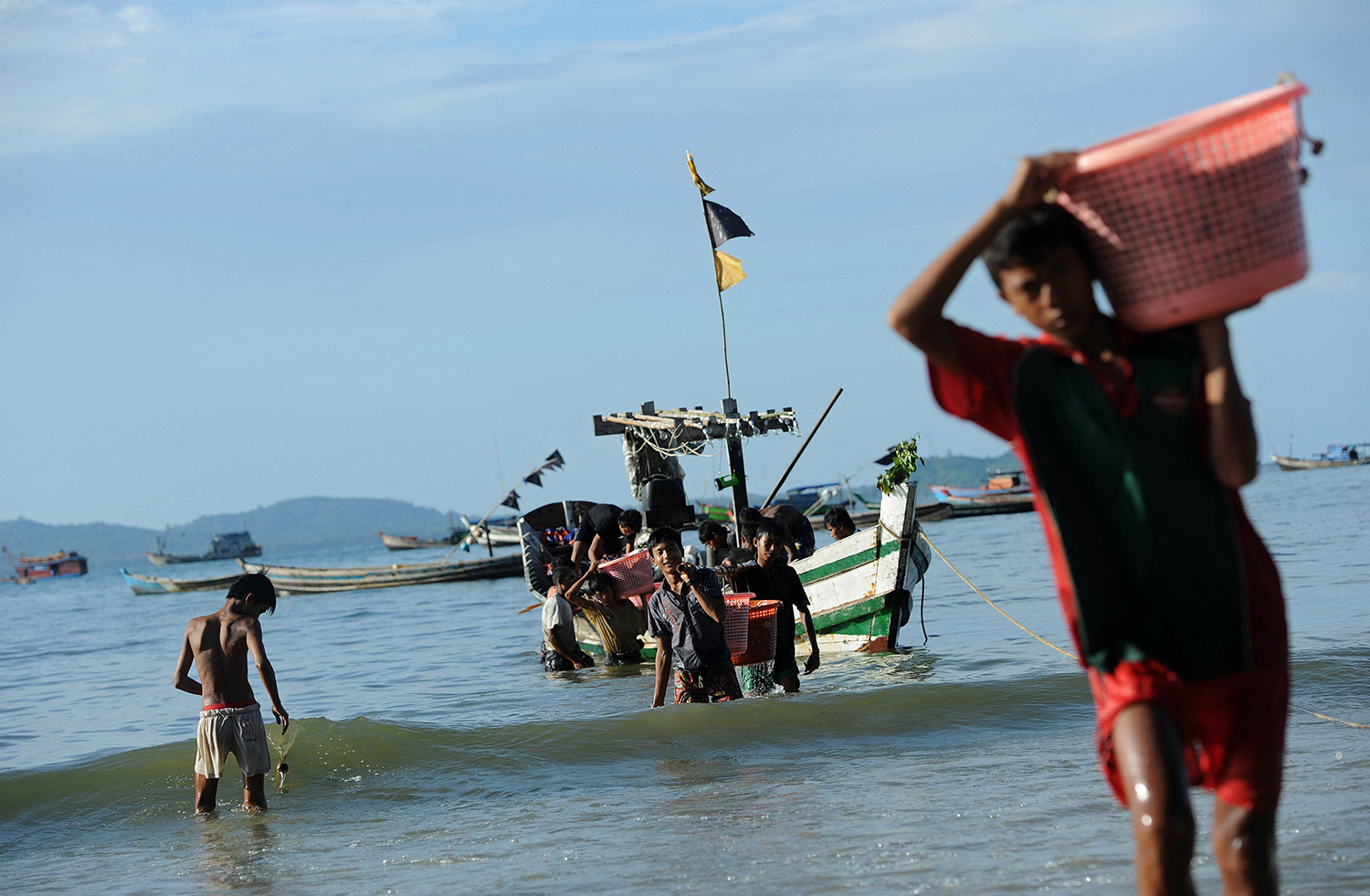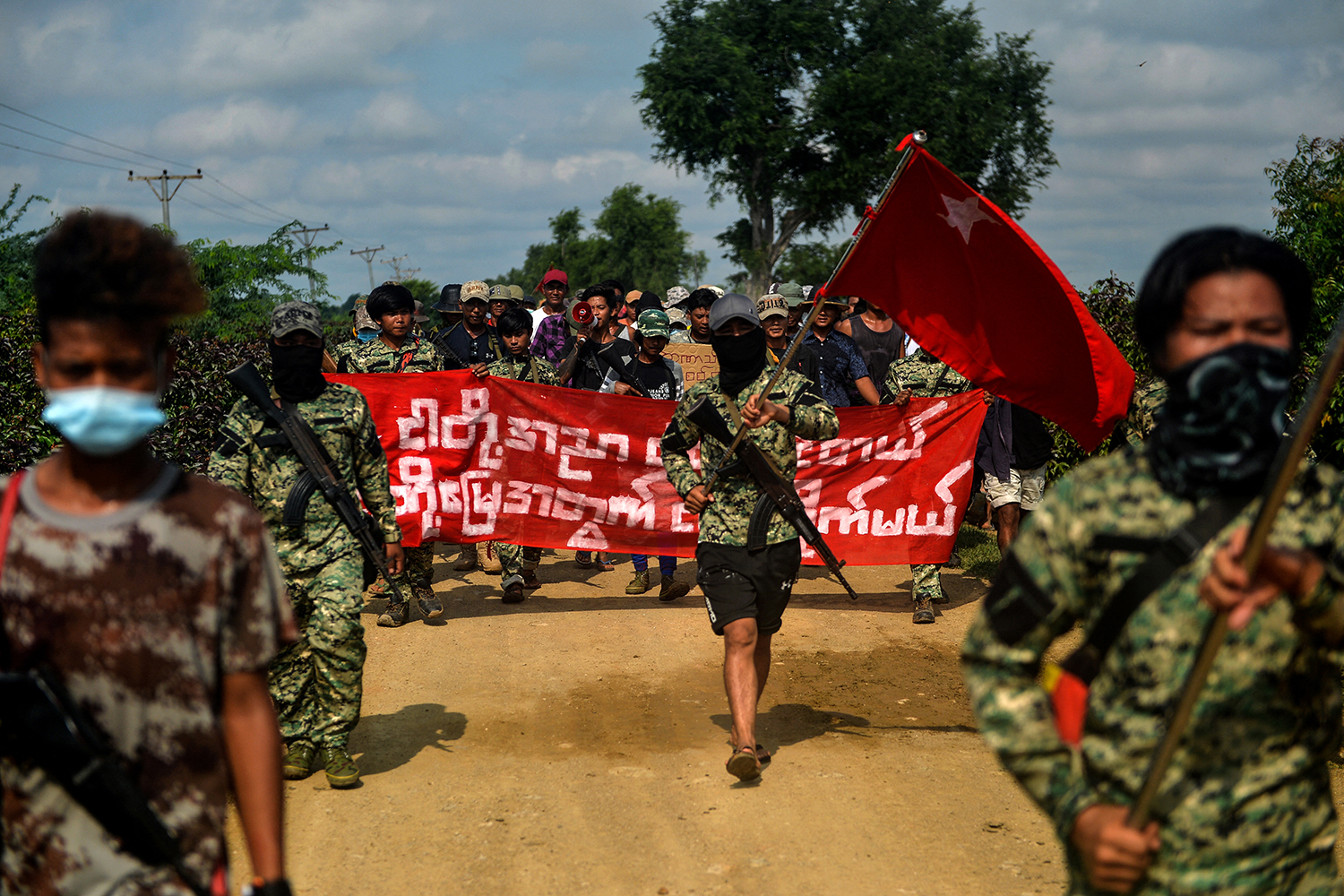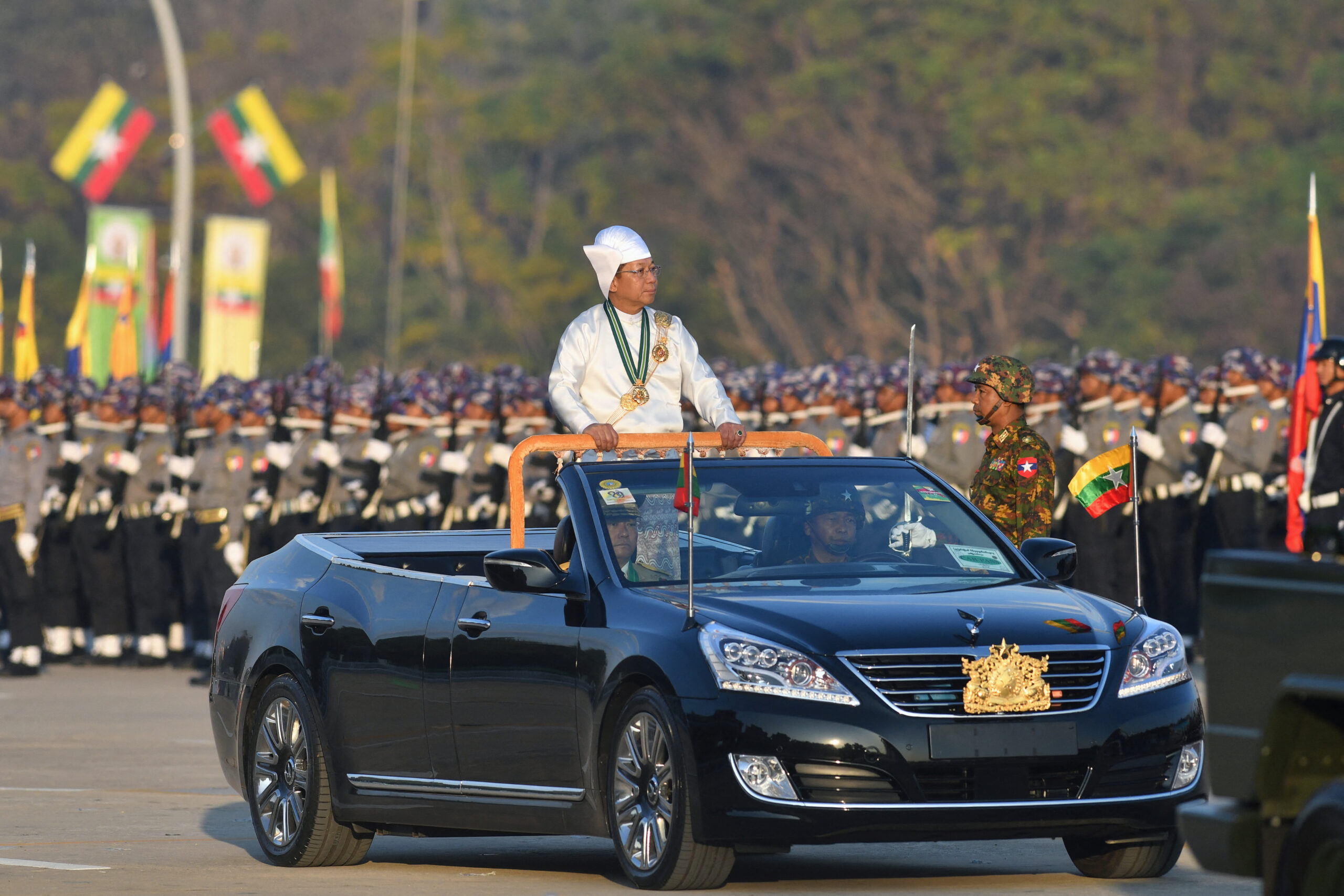A recent town hall meeting aimed to dispel concerns about the multi-billion-dollar Yangon New City project and fast, cheap internet access enabled those affected by the project to follow proceedings remotely.
By KYAW YE LYNN | FRONTIER
WHILE HUNDREDS of people gathered in Yangon on June 23 for a town hall meeting concerning the multi-billion-dollar Yangon New City, villagers in the project area were also keenly following events at the Union of Myanmar Federation of Chambers of Commerce and Industry.
If you were in the conference hall at UMFCCI, though, you could be mistaken for thinking that locals from Twante Township weren’t interested. Few, if any, showed up – but that’s only because they could follow a FB Live feed on their smartphones.
“We were really interested in the meeting, this so-called town hall. But we didn’t bother to go because we knew [the organisers] or someone else would do a Facebook live,” said Ko Myint Naing Kyaw, a real estate agent and farmer from Twante Township’s Tamatakaw village.
Myint Naing Kyaw even watched the event from the comfort of his living room, on an Android TV Box that he bought earlier in June after hearing about the device from a Chinese worker on the New Yangon City project. Curious, Myint Naing Kyaw searched on Facebook and ordered one from an online shop for K55,000, plus K3,000 delivery fee.
Support more independent journalism like this. Sign up to be a Frontier member.
About 30 minutes before proceedings began, a dozen Tamatkaw residents had already gathered at Myint Naing Kyaw’s home to watch the broadcast on his TV. And the verdict?
He said they didn’t know what to expect, but thought that officials would probably just talk for a while and not take any questions. “That’s what they normally do in meetings like this. But it was a bit interactive,” he said. “We liked it even though we didn’t understand most of the discussions.”
There were some disappointing aspects, though, Myint Naing Kyaw said, such as the lack of any senior regional government officials at the meeting, including NYDC chair Daw Nilar Kyaw. “We were also expecting to learn more about land compensation, but we didn’t hear any new information.”
‘Transparency is a powerful tool’
New Yangon Development Company, which was launched in March, aims to attract US$5 billion in investment to turn an undeveloped part of Yangon Region west of the city into a thriving commercial and residential hub twice the size of Singapore.
NYDC is the development vehicle for the project. While it is 100 percent owned by the Yangon Region government, its board contains three independent directors – businessman Mr Serge Pun, former Singaporean foreign minister Mr George Yeo and former senior United Nations official U Tun Myat – and two government representatives.
Pun, the NYDC chief executive officer, said at the event that the company plans to hold more town hall meetings to address confusion and misunderstandings about the project’s tendering and implementation processes.
He said the meeting was organised because of the widespread criticism, particularly on social media, about the project’s perceived lack of transparency. “As transparency is powerful tool, we’ve made it a first priority at every single step.”
The three other panellists – U Khine Win, founder of Sandhi Governance Institute; U Ye Myat Thu, managing director of Alpha Mandalay Company, and U Zeya Thu, deputy chief editor of The Voice – were chosen because they had raised concerns about the project, particularly the government getting involved in business.
But Pun defended the government’s role in the project, saying its only ambition was to attract private sector investment. “The whole [New Yangon City] project will be implemented with 100 percent investment from the private sector.”
Concerns over Sri Lanka
NYDC has already signed an agreement with state-owned China Communications Construction Company to prepare a detailed project proposal for infrastructure works for phase one of New Yangon City. Pun said the infrastructure work required under phase one has been estimated at $2 billion, and two bridges and 26 kilometres of roads had already been identified as priority projects.
Panellist Khine Win said the decision to choose CCCC without conducting a tender had created concern. In particular, he cited CCCC’s track record in Sri Lanka, where a subsidiary, China Harbour Engineering Company, is undertaking a project called Colombo Harbour City. He said he had read case studies that said Sri Lanka had leased freehold land to CHEC for more than 90 years.
CHEC also built a deepsea port in Sri Lanka that critics claim saddled Sri Lanka with debt and ultimately prompted it to lease the port back to a Chinese company for 99 years.
But Khine Win also noted that NYDC had not yet signed any such agreements with CCCC. “We don’t need to worry as [NYDC] is still in an early stage,” he said.
Pun said there was no risk of a repeat of events in Sri Lanka because the government would not be taking on debt to implement the New Yangon City project.
In response to the criticism about not calling a tender for the infrastructure proposal, Pun said it was to “avoid wasting time” and NYDC would instead use a process modelled on the “Swiss Challenge”. In the case of CCCC, once it has finished its proposal NYDC will publicise the documents and call a tender. If a company bids less than CCCC to build the infrastructure, it will be selected instead but will have to reimburse CCCC for the costs incurred.
“You will see that the NYDC Challenge has ultimate transparency,” Pun said.
Pun however didn’t respond directly to a question from the audience as to whether the establishment of NYDC went against the National League for Democracy-led government’s economic policy. The second of 12 points in the policy states that the government aims to support competition and a vibrant private sector.
“I have nothing to say about the policy. But I want to ask one thing: What kind of business is NYDC doing? Nothing. If a bridge is to be built, it will be built by the private sector, not by NYDC. If a road is to be built, it will be built by the private sector, not by NYDC. We don’t. We can’t do it. We also don’t have the money,” he said. “What we are going to do is to invite the investors who want to do it, who has the ability to do it and who will do it in the right ways, and support them.”
Compensation concerns
The farmers of Tamatakaw and other villages in Twante are not the only ones concerned about the compensation process for landowners. Since the project was first announced in 2014, under the former Yangon Region government, speculators have rushed in to buy up farmland in the hope it will appreciate in value.
In the audience at UMFCCI on June 23 was a woman, 38, who owns 2 acres of farmland in the project area. A Chinese teacher at the Yangon University of Foreign Languages, she asked not to be named because she had bought the land for K45 million without her husband’s knowledge.
“I purchased it soon after the plan was announced in 2014,” said the woman.
Under the government’s compensation plan, she will receive 0.4 acres of urban land in exchange for her 2 acres of farmland. But like many others who bought up land in Twante in recent years, she has not registered her purchase or paid tax on it.
“I didn’t also change the land ownership,” she said. “Instead we just did it the normal way by signing a purchase agreement in front of the village administrators and four witnesses.”
She’s now worried that she might miss out on compensation and like the farmers from Tamatakaw had been hoping NYDC would address the issue at the town hall.
“It gives me a headache as I don’t know exactly what will happen,” she said. “I hope the authorities will clear it up soon.”







